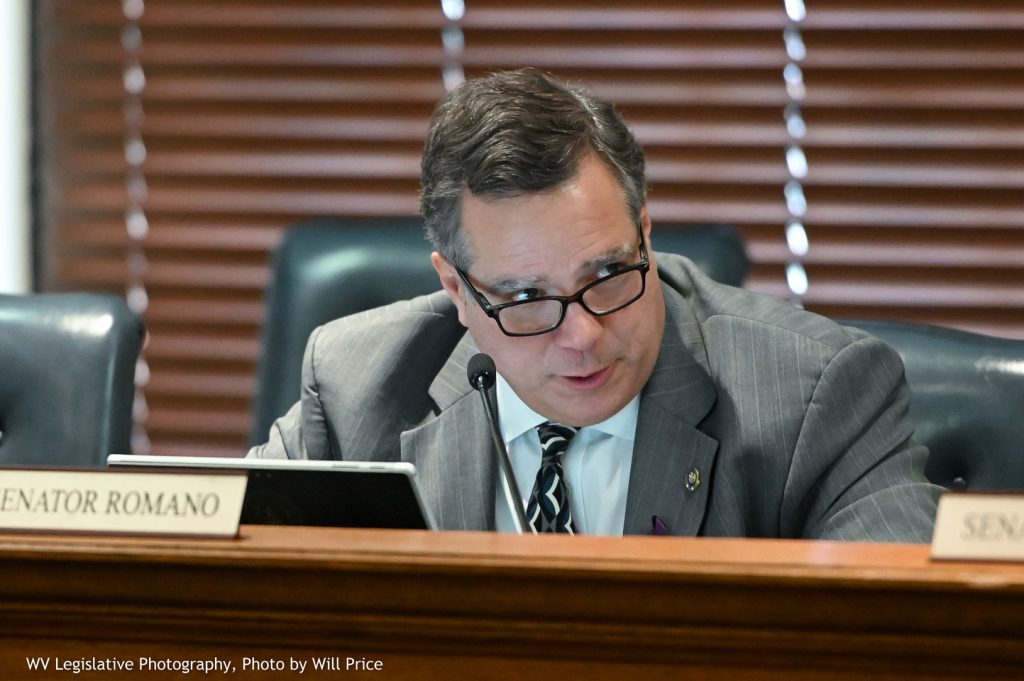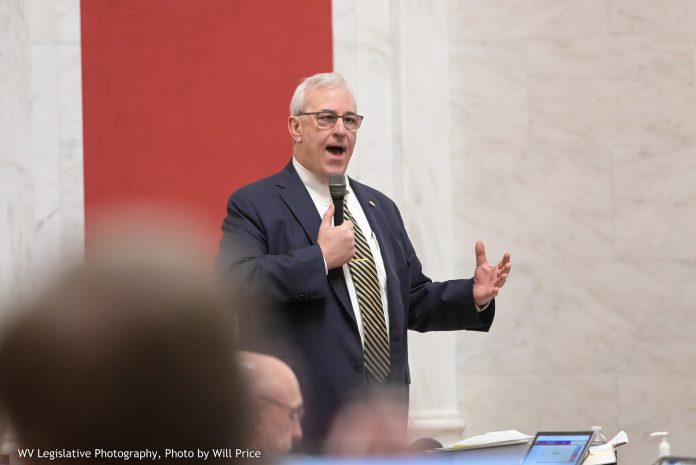The Bill Would Add a Judicial Layer Between Circuit and Supreme Court
Proposed legislation to create a West Virginia Intermediate Court of Appeals has become a recurring, relevant topic in the Senate Judiciary committee this week.
Senate Bill 275 proposes the creation of an Intermediate Court of Appeals, which would operate as a judicial layer between circuit courts and the state Supreme Court of Appeals. The Intermediate Court would be comprised of the northern and southern districts, conducting court proceedings as a panel of six total judges – three from each district.
The Intermediate Court of Appeals would have jurisdiction over decisions and orders concerning circuit courts in a civil case, family courts, administrative agencies appealable to the Kanawha County circuit court, guardianship and conservatorship cases, and the Workers’ Compensation Board of Review. The court would not handle criminal cases.
The bill was taken up by the Senate Judiciary Committee on Jan. 24. Counsel gave a presentation explaining the bill and answered questions from the committee before giving the committee the weekend to consider the bill along with potential amendments.
The committee began discussing the bill Monday morning, but the bill was once again laid over until later that afternoon.
A representative from the United States Chamber of Commerce spoke in favor of the bill and answered questions from the committee. The representative explained that the purpose of the bill was to modernize West Virginia’s court systems and create a more attractive environment for out-of-state businesses.
Some members of the committee argued that small businesses would suffer for the expenses of the bill, along with the salaries of Supreme Court Justices. Others saw this as an opportunity for businesses to be better represented in the state.
Amendments for the bill were adopted on Monday by the Judiciary Committee. One amendment adopted by the committee changed to provide judges to be elected instead of appointed by the governor as originally under the introduced version. If there is a vacancy, the governor would appoint, with advice and consent from the Senate, a judge from the Central Vacancy Advisory Commission.
A major concern of this bill is the cost. The Intermediate Court of Appeals would call for the appointment of six judges, each with a salary of $130,000 per year. The salaries and costs of the Intermediate Court of Appeals will be included in the appropriation for the state Supreme Court of Appeals.

Sen. Mike Romano, D-Harrison, stated his disapproval for the bill.
“The creation of an Intermediate Court of Appeals is totally unnecessary,” Romano said.
He believes the addition of another layer to the state judicial system will cost the state millions of dollars to create. This would not only require paying the salaries of judges and employees but would broaden the base of legal literature. He said the creation of this court system would only benefit large insurance corporations and the U.S. Chamber of Commerce, and West Virginia businesses would suffer as a result.
Romano said since a study conducted under former Gov. Joe Manchin in 2009, the number of appeals to the State Supreme Court of Appeals has been reduced by two-thirds; so, the creation of this new court is not justified by the claim of alleviating the Supreme Court’s workload.
Sen. Charles S. Trump IV, R-Morgan, sponsored the bill and believes the Intermediate Court would be beneficial in relieving the workload of the Supreme Court of Appeals.
“Our Supreme Court is among the busiest in the nation, as busy as it’s ever been,” Trump said. “An Intermediate Court of Appeals is necessary to allocate appellant review of judicial decisions in West Virginia and establish a system of review that is timely and thorough.”
Another concern is the delay that may occur when issuing another court system in the state. Trump said he believes this concern is overstated, and the court may expediate appeals from cases of lower courts. Although committee members remained divided on the issue, which has remained a hot topic last week, the committee advanced the bill. It now heads to the Senate Finance Committee to evaluate the costs and benefits of passing the bill.

